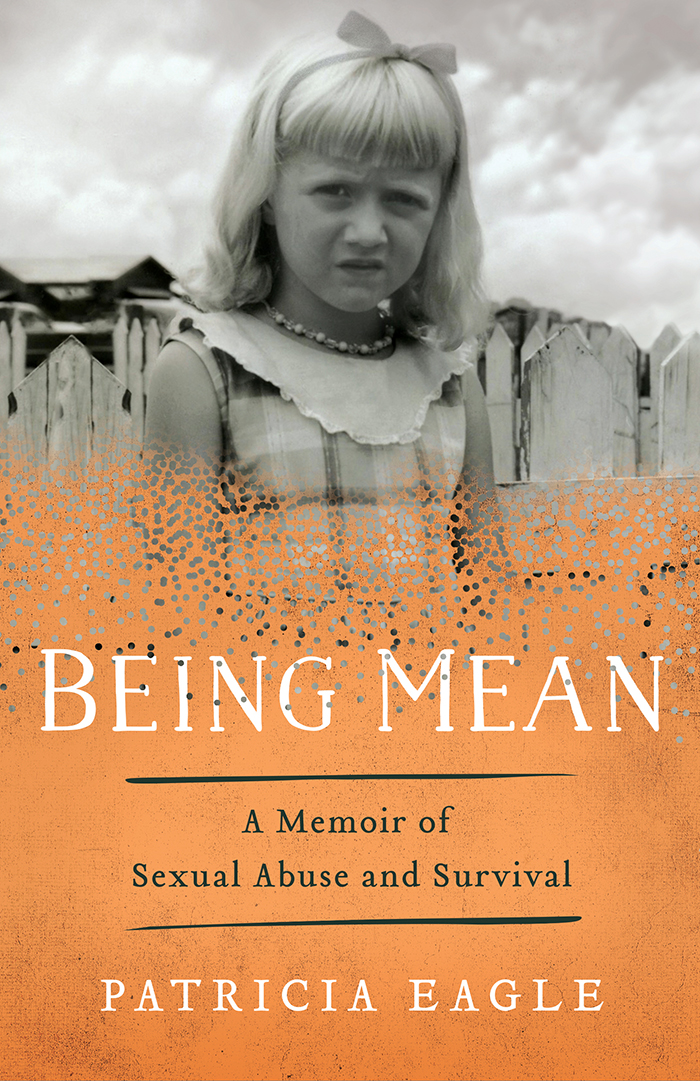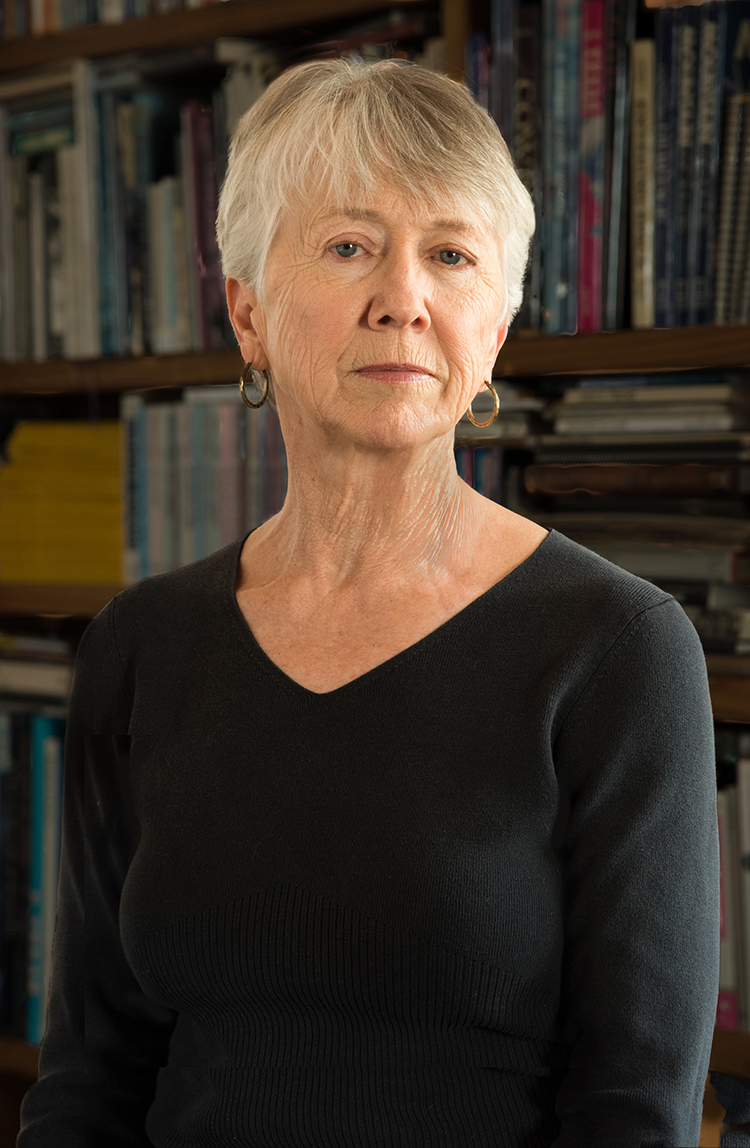
Q&A: UHCL alumna publishes memoir on sexual abuse
Texas native and University of Houston-Clear Lake (UHCL) alumna Patricia Eagle published her debut novel “Being Mean: A Memoir of Sexual Abuse and Survival” June 11. A memoir nearly a decade in the making, Eagle’s story is an intimate look into her life that details her earliest childhood memories from the 1930s to 2017.
Eagle’s abuse began around age 4 until she was 13. Eagle says the memories were suppressed in order for the body to survive. Not only are moments of the abuse told through sensory details but also through the language she knew as a child like the phrase “being mean.”

First hearing it at age four, the phrase “being mean” was a euphemism Eagle’s mother used for masturbation.
“One major reason that adults may use non-medical terms when talking to their children about their bodies is that that’s what was modeled to them by adults in their lives when they were children,” said Lindsey Doe, doctor of human sexuality and practitioner of clinical sexology. “They may not know other words or may feel incompetent or awkward using them.”
Eagle’s silence and shame built up over a lifetime until she built the stability and strength to tell her story.
“Shame is an incredibly powerful way to get people to behave a certain way even if it isn’t honest or kind,” Doe said. “People use shame to stop their kids from masturbating because they’re shamed by society if they don’t.”
The book chronicles her life with journal entries, which is something Eagle is no stranger to, having journaled since she was 8 and more seriously in her 20s.
While studying multicultural education at UHCL, Eagle chose her master’s research topic to be professional reflective journaling. This is a method of journaling she developed through working in education decades and practiced with for personal reasons.
The Signal reached out to Eagle to talk more about her story and publishing it.
Q: You came back to Texas in the late 1990s and while teaching full-time, you earned your degree in Multicultural Education from the University of Houston-Clear Lake. Why did you choose UHCL among all the other options across the south and west you had been to?
A: I returned to Houston specifically because Sister Kitty lived there and I wanted to be closer to her during a tumultuous time of my life. Also, the partner of my deceased friend John, who had died of AIDS, lived in Houston and was active in helping me relocate.
I was at a time in my life when I needed all the help I could get. HISD was quick to hire me and that made it easier as well. Houston held several opportunities for graduate studies and I was able to obtain a grant for UHCL. I liked the location (sometimes I could manage to spend some time in Galveston after Saturday classes) and the campus too.
Since I was heading up the International Club at my school while developing and teaching “Comparative Cultures,” I leaned toward Multicultural Studies in Education. My students at the time came from over 40 countries and were helping me realize how much there was to learn about my world in order to be a better teacher.

Q: Journaling is seen as a private method of expression. When did you decide you wanted to turn those personal writings into a book for the public to read? What was the thought process involved with the decision?
I have journaled for decades, and my journals definitely served as a reference for many stories or parts of stories in my book. I did not use journal excerpts directly or turn my personal journal writings into a book.
My journals are far from being literary pieces; instead, they serve as more as a therapeutic tool for me. They help me process what I’m living, and in the case of my research using journals with teachers, they helped us better understand our students and ourselves as teachers, and how we could teach more effectively.
I referenced my older journals to remember things from the past. Sometimes this was challenging because I didn’t always date my journals. And I also used journals from the present to reflect on my writing process and make projections for my future.
For example, how was I feeling about a story I had just written and what was I considering writing about next? My journals are messy and often poorly written, yet they offer me fabulous maps of where I’ve been, where I am, and where or how I want to go forward.
Q: In revisiting you past with Gene, Sister Kitty and your sister, you were able to talk about the abuse inflicted by your parents. Did you ever have a moment in which you were able to talk to your niece about your shared trauma?
A: No, I never did. She was young at the time and that would have been a step for her mother to take, not me. Years later I asked my sister if she had talked with her daughter and she said she had and that her daughter said she had not experienced any sexual abuse. I have my doubts, but that is not my call to make. I also know it can take many years before a person is able to allow suppressed memories to surface.
At the time my sister told me her daughter’s therapist had asked about any sexual abuse in our family, I was very depressed and suicidal. Once my memories surfaced, I was barely able to function as a wife, stepmother, and teacher. I was a distant aunt to my niece by miles and emotions.
When I brought up my memories, my birth family was thrown into chaos and my connection with my parents was severed for five years, and those with my sisters became touchy. Neither of my sisters wanted to “go there” (into memories) and “relive the past,” and one said she didn’t see how it would help.
I understand this response but “going there” through therapy is precisely what saved my life. The choices of my sisters were different: one of my sisters chose alcohol and the other religion, and apparently that is what gives them comfort.
Q: Is there anything you wish you could have included or removed from the book?
A: My book holds only 67 stories out of my life at 65-years-old. Obviously, there are many stories that I left out. I don’t wish to remove any of them and I do feel I could have added more that would have contributed to the overall story, but the book feels complete as is.
It is definitely a challenge to be so transparent about my life and not hold back about what I’ve experienced from sexual abuse to promiscuity to multiple pregnancies to abortions to drug use to my comfort with profanity to healthy elder sex. Sometimes after I had written a piece, on rereading I realized I had not really told the full story or used language in an authentic voice.
I was seeking healing at the deepest levels, so I went back often, quit trying to make myself look or sound better than I really was, and dared myself to tell the truth. That’s why I dedicate my book to having the courage to trust being truthful. I believe that is what will truly help those who have experienced child sexual abuse to survive and experience a healthy recovery.
Q: What are your thoughts on the movements and increased public awareness regarding sexual abuse and harassment?
A: It’s about time, and we still have a long way to go. Considering the staggering statistics on child sexual abuse––1 in 4 girls, 1 in 6 boys, and that is what is disclosed––it is mind-boggling. That means there are a huge number of perpetrators out there to identify and guide toward help. How can we do that effectively and quickly? I feel promise with the uncovering of abuse and harassment in our families, churches, schools, Boy Scouts, sports teams, health care, the entertainment industry and more.
When I consider the origins of this behavior and the willingness of many in our culture and world to ignore sexual abuse and remain silent, I do wonder. Is this a carry-over from patriarchy and the belief that a man owns his wife and children and can do what he wants with them? Or that in other settings, like the church, that a priest or pastor is ordained by God and so powerful that he can do as he chooses? I don’t know these answers, but I know that I care––about the abusers and the abused––and I hope we will make significant changes for the sake of all of their lives.
Q: Is there anything you would like our readers to know?
A: Allow me to follow up the above response and say that child sexual abuse is so pervasive in our culture, we all have a responsibility to listen and learn and try to stop it. My book helps others see one way abuse happens, and then how such experiences negatively affect a person’s life.
Speaking up and learning about abuse creates change. The confidence I gained to look deeply at my life was built slowly and carefully, one step at a time, one question at a time, one answer at a time, one story at a time. I remain hopeful my recovery will reach far beyond my own personal experience.
For resources relating to abuse, visit the UHCL Counseling Center. Additionally, Eagle has a list of resources on her website and Doe recommends the book “Harmful to Minors.”

Thank you Patricia, I will read this! I hope it’s at our library too (debuted). I also recommend: God Made ALL of Me by Justin S. Holcomb (sexual abuse survivor) and Lindsey A. Holcomb.
Another book I recently read was by Dr. Juli Slattery, RETHINKING SEXUALITY.
Link to God Made ALL of Me by Justin S. Holcomb (sexual abuse survivor): https://www.focusonthefamily.com/media/daily-broadcast/protecting-your-child-from-sexual-abuse
Link to Rethinking Sexuality by Dr. Juli Slattery: https://www.amazon.com/Rethinking-Sexuality-Gods-Design-Matters/dp/0735291470
God Bless,
Jennifer Nease
Special Education major
Contributed article to UHCLTheSignal: https://www.uhclthesignal.com/wordpress/2018/05/07/qa-sarah-cuellar-encourages-students-to-persevere/